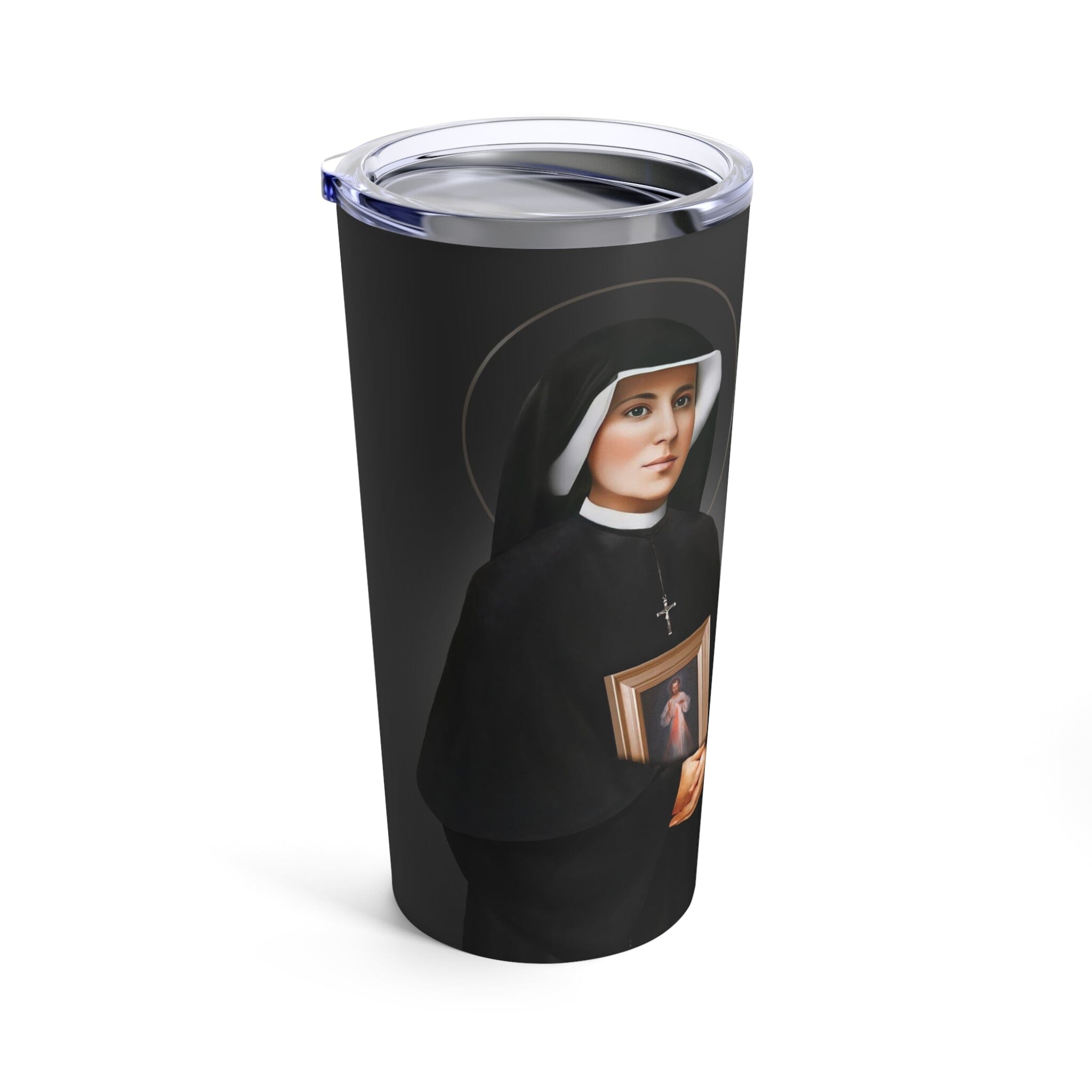



St. Faustina Lord's Prayer Tumbler 20 oz. (Ash)
The St. Faustina Tumbler will keep your coffee hot or your refreshments cold while you are on the go. The 20 oz. tumbler is made of stainless steel and features a glossy exterior finish and a see-thru plastic lid with a suction seal. The perfect travel companion for the car, office, school or outdoor event. Makes a truly unique and practical gift!
■ Stainless Steel
■ Dishwasher Safe

This is a couture item which is custom made-on-demand. Our couture collections feature exclusive, custom designs with our signature crown somewhere within the design. Not sold in stores and you won’t find this anywhere else. EXCLUSIVELY AT VENXARA.
Shipping + Delivery
This custom made-on-demand Tumbler ships world-wide directly from our producers in Georgia, USA. Destination tracking is available for most countries. A tracking number will be emailed to you once your order has shipped.
Production Time: 2-5 days
Ship Time: 5-12 days
Please Note: During peak shopping seasons, production and ship time may take a little longer than normal. If you are buying this item as a gift, please order as early as possible. We don't want to disappoint you or the gift recipient with a potentially delayed order.
For countries where tracking numbers are not available, this item should arrive by regular post within 2-4 weeks. Orders that have not arrived within 45 days of order processing are eligible for a free reshipment or a refund.
About St. Faustina

ST. FAUSTINA KOWALSKA
1905 — 1938
Feast Day October 5
Patron Saint of mercy.
Maria Faustina Kowalska (born Helena Kowalska) was a Polish Roman Catholic nun and mystic. She was the third of ten children born to a poor but devout Catholic family. Helena had very little education and was rejected from several convents because of her poverty and lack of education. At the age of 20, Helena was finally accepted and entered the Congregation of the Sisters of Our Lady of Mercy in Warsaw, Poland. There, she took the name Sr. Faustina and spent time in convents in both Poland and Lithuania.
Throughout her life, Sr. Faustina reported having visions of Jesus and conversations with him, of which she wrote in her diary, later published as The Diary of Saint Maria Faustina Kowalska: Divine Mercy in My Soul. Her biography, submitted to the Congregation for the Causes of Saints, quoted some of these conversations with Jesus regarding the Divine Mercy devotion. Her apparitions of Jesus inspired the Roman Catholic devotion to the Divine Mercy and earned her the title of “Secretary of Divine Mercy.”
Sr. Faustina was moved to Vilnius where she met her confessor Father Michał Sopocko, who supported her devotion to the Divine Mercy. Faustina and Sopocko directed an artist to paint the first Divine Mercy image, based on Faustina’s vision of Jesus. Sopocko used the image in celebrating the first Mass on the first Sunday after Easter. Subsequently, Pope John Paul II established the Feast of Divine Mercy on that Sunday of each liturgical year.
In her diary, Faustina wrote: In the evening, when I was in my cell, I became aware of the Lord Jesus clothed in a white garment. One hand was raised in blessing, the other was touching the garment at the breast. From the opening of the garment at the breast there came forth two large rays, one red and the other pale. In silence I gazed intently at the Lord; my soul was overwhelmed with fear, but also with great joy. After a while Jesus said to me, Paint an image according to the pattern you see, with the inscription: Jesus, I trust in You. I promise that the soul that will venerate this image will not perish. I also promise victory over its enemies already here on earth, especially at the hour of death. I myself will defend it as My own glory.
In 1936, Faustina became ill, since speculated to be tuberculosis. As her health deteriorated, Faustina’s visions intensified, and she was said to be looking forward to the end to her life. She died on October 5, 1938 at the age of 33 and was buried in a tomb in Krakow’s Basilica of Divine Mercy. The Roman Catholic Church canonized Sr. Faustina as a saint in 2000. The mystic is classified in the liturgy as a virgin and is venerated within the church as the “Apostle of Divine Mercy.”
Choose options




